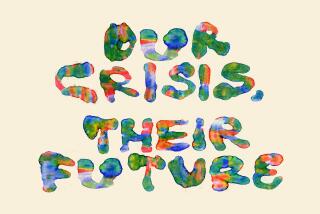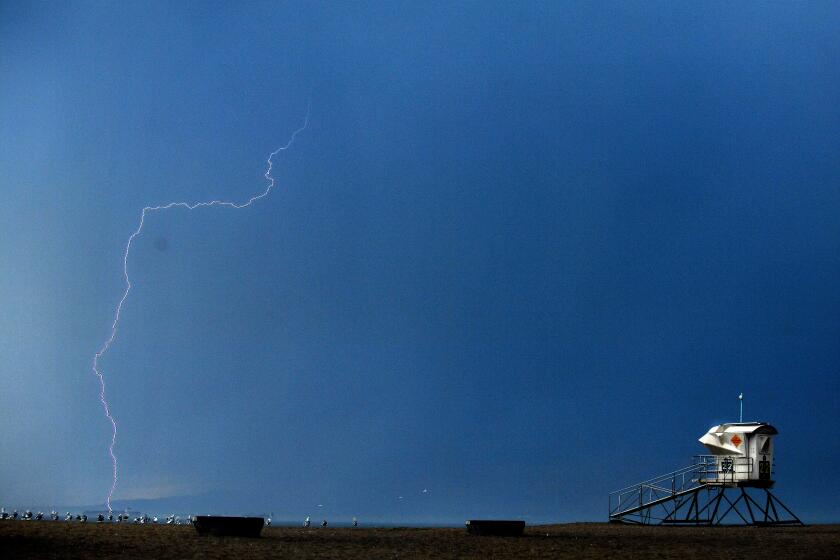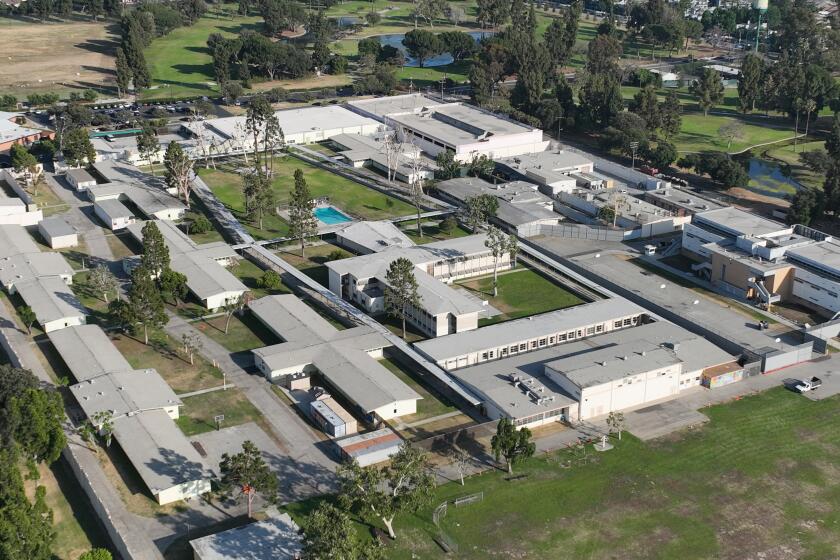The power of the click
- Share via
The Internet is a maturing technology now. It’s reached the point where we’re figuring out how to do things that don’t involve gambling, shopping or looking at the scantily clad. Politics, for instance. Politics in whole new ways that might change the balance of power between politician and citizen.
The 2004 election cycle saw one breakthrough. Especially on the left, candidates figured out how to raise money over the Web. Howard Dean was the pioneer. This time around, it’s Barack Obama, who says he has amassed 300,000 contributors -- one American in 1,000 has given cash to his campaign, which is pretty remarkable.
For 2008, though, activists are trying to turn the Internet into something more than an ATM. We’re trying to take the candidates out of their game plans and make them answer to our concerns, right now, before the votes are cast and while there’s still some leverage. We’re trying to use electrons to pin them down.
Those of us working on global warming, for instance, are focusing efforts this fall on Stepitup07.org. Last spring, we used this website to coordinate 1,400 simultaneous rallies in all 50 states calling for deep cuts in U.S. carbon emissions. On Nov. 3, we’re staging another series of gatherings across the country, this time aimed squarely at politicians, trying to see if there are some Al-Gores-in-waiting out there, ready to actually lead on this issue.
Using a new “widget” -- a small, easy-to-share Web tool -- we’re able to let people issue invitations to their politicians of choice to speak at these rallies. Since this project debuted early this month, more than 3,000 people have taken us up on it, inviting almost every member of Congress and all the presidential candidates. And some of those politicians are promising that they’ll show up.
This is new. In days of yore, if you were concerned about, say, global warming, you might write a letter to your congressman. You might research the presidential candidates to figure out which one was most aggressive about climate change, and then you might mail him a check. But the chance to work together with people around the country on a common cause was mostly reserved for “organizations” -- for environmental groups, say, with big buildings in Washington, calendars and boards of directors.
In the Internet Age, though, new models emerge. When we ran those rallies last spring, we had help from the Sierra Club, the Natural Resources Defense Council and many others -- but we also had hundreds upon hundreds of organizers who had never done anything like it before.
In the course of six to eight weeks, they were able to parlay their e-mail lists of friends, family and contacts into geometrically expanding circles of potential protesters. For $100,000, we ran one of the largest days of environmental protest since the first Earth Day in 1970 -- and did it in the districts of members of Congress, not on the Mall in Washington.
Now, with our new “invite tool,” you can sit at your computer and in 10 minutes ask every one of your political leaders for an RSVP. It feels as though we’re starting to make them respond to our agenda, not the other way around.
We’re finding, in other words, that a certain kind of organizing no longer requires years of groundwork. It requires a good idea and a well-written e-mail. MoveOn.org has been working this terrain for years; now groups like ours are trying to figure out how to mix real-world and virtual politics, how to work the system as nimbly and with as much savvy as the K Street lobbyists. We can’t come up with $1,000 for a plate of dinner, but we can muster 1,000 people in 1,000 different places to demand action.
In certain ways, it’s a lousy time to be coming of age -- those satellite photos last month of the rapidly melting Arctic ice cap foreshadowed a century that will be spent trying to deal with the greatest threat to stability that human civilization has ever encountered.
But the moment has also given us a new set of tools for connection. The fight against global warming requires all kinds of technology -- solar panels and windmills, but also servers and routers.
Bill McKibben, a scholar in residence at Middlebury College, is co-founder of Stepitup07.org and coauthor of the just-published “Fight Global Warming Now.”
More to Read
Sign up for Essential California
The most important California stories and recommendations in your inbox every morning.
You may occasionally receive promotional content from the Los Angeles Times.













